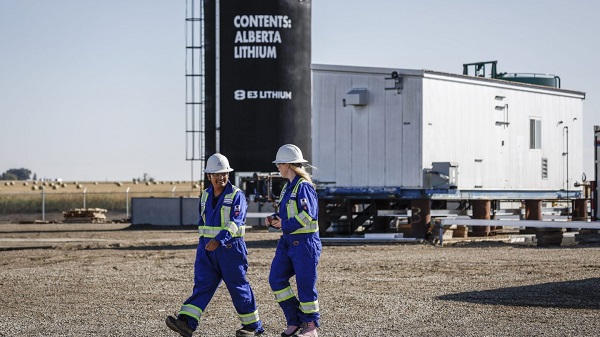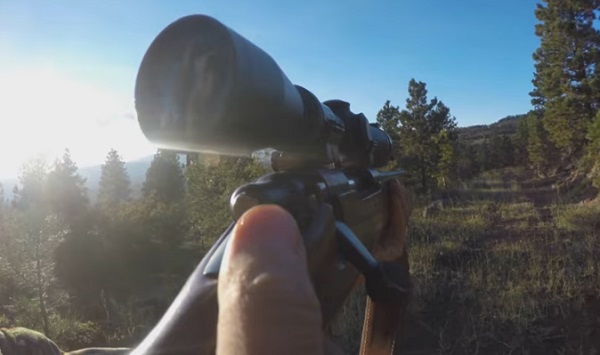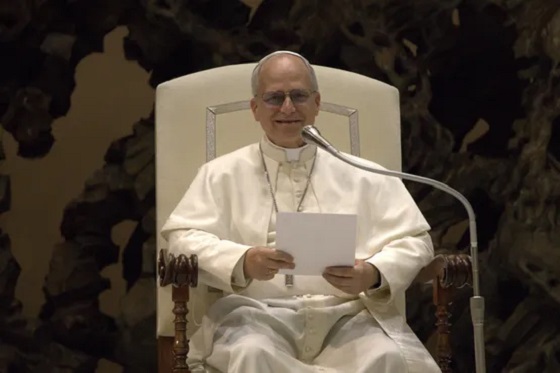Bruce Dowbiggin
Elbows Up Part Deux: Liberal Canada Now Riding The Blue Jays
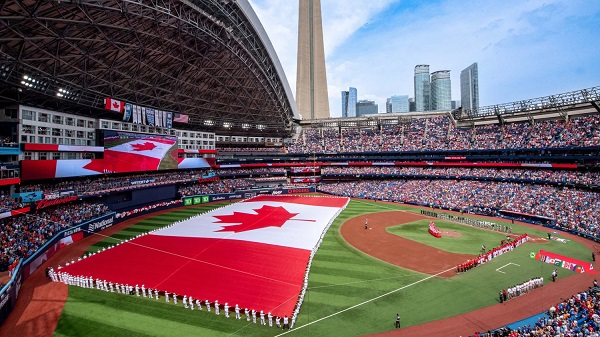
And you thought Elbows Up was just a hockey thing? Ha! The folks who marketed the Mike Myers hockey election campaign to use Donald Trump to distract Canadians have decided that baseball fans must too be swept up in patriotic fury to support the governing Liberal minority. All over a baseball team with zero Canadians on its roster.
This from the nation that half an hour ago was telling the world Canada was a genocidal settler tyranny burying murdered babies in the moonlight. Go figure.
Rogers Media is running commercials during the Blue Jays AL Divisional Series boasting in Liberal red and white “Proud owners of Canada’s national team”. (What team owner has ever put itself above the title on a sports team?) If you haven’t caught that ad there are others Rogers’ ads extolling its magnificence in giving Canada the highest telephone bills this side of Botswana. Oh wait… They say, Go Jays Go, Canada’s national team. Sorry about that.
The team’s announcers are also being made to read verbatim prefab trite slugs about the story of the Blue Jays not being written yet. (We counted three doing the hype before Gm. 1.) Watching the proud-as-punch onslaught from the team’s owner one would think this has to be more than Vlad Guerrero uber alles. And, of course, there is. Rudyard Griffiths, publisher of The Hub, calls it part of the “soft, silent takeover of the nation’s press”. Having used public money to bribe… er, support even the richest media in the country Liberals can count on their support for tongue bathing of Mark Carney’s faculty lounge.
The intro for Game One of the ALDS lathered the “Canada’s team” lard. You’re supposed to think its the 1992-93 World Series all over again. Don’t pay attention to those MAGA cranks in the corner. Rogers is not alone. Much of the advertising during the Jays/ Yankees equates Canada’s team and Canada proud. The advertisers on the games are punctuating ads with a “made in Canada by Canadians” angle (even as jobs flee the country).

But never has the Laurentian Elite of Canada needed a distraction from the mess of Canada’s Liberal hegemony. It can’t be seen that Trump was correct stating it was a better deal being part of the U.S. Samples of Elbows Down:
Canada has no mail system.
“Hollywood North” just got torpedoed by Trump.
Government financial watchdog said the economy is “unsustainable”
Country is in cost-of-living, unemployment and housing crises.
Imperial just let go 1,000 employees and sold its Calgary HQ.
There’s plenty more. Like the virtuous refusing to visit the U.S., the Jays’ insertion into the mindset of Boomer Canada is providential to advertisers who make a living pitching the Liberal brand. Almost as precious as “Our” team is the concept of the Blue Jays as a national team. It seems like only yesterday they were deposing the previous national team, the Montreal Expos. The ‘Spos had aided Toronto in getting a franchise in 1977. When Toronto sputtered in the early days the Expos gave them oxygen. But as we wrote in July of 2023, the newcomer turned on their National League cousins.

“As the Jays went from weak sister to equal partner to dominant team on the field winning the 1992-93 World Series, their tone about letting Expo games generate income in their territory grew less than cordial. Labatt Breweries owned the biggest, most lucrative market in Canada. And only they should profit from it.
This exposed the fundamental weakness of the Montreal franchise. The Olympic Stadium was proving to be a cold, fan-unfriendly disaster. Hundreds of thousands of English speakers had left the province when the Parti Québecois took power. At the same time as initial owner Charles Bronfman was tiring of coming up short on the field and repeated labour stoppages, the Expos were threatened with a severe hit to their broadcast revenues.
Their friendly sharing of MLB in Canada with the Jays now appeared naïve. MLB said the Expos could control Quebec and the Maritimes, but it would have to stay out of southern Ontario. McHale could see the writing on the wall. Owner Bronfman appealed to then-commissioner Bowie Kuhn for relief, saying this ruling would “ghettoize” the team within Canada. His intent on buying the club in 1969 had been to “bring Quebec into the nation”. Instead, the team he’d encouraged to join MLB was freezing the Expos out of the large English speaking markets.
After hearing from the Jays, MLB commoner Bowie Kuhn allowed the Expos to show 15 TV games a season in Ontario. McHale and Bronfman knew this was inadequate. As the Jays started getting into the postseason in 1985 and the Expos sank in the NL the die was cast. Making it worse, the Canadian dollar began its plunge that ended with a 62-cent dollar versus the U.S.

The 1994 season, in which Montreal had the best record in MLB, was cancelled. Bronfman sold the club to a consortium of owners without Bronfman’s means. By 2000, attendance nosedived as the Expos dumped their great core of Walker, Pedro Martinez, Moises Alou and John Wetteland. By the early 2000s, new American owner Jeffrey Loria was actively trying to sell the team to investors who’d move it to the U.S.
By 2005, the Expos were sold to new owners in Washington who renamed the club the Washington Nationals. Loria, meanwhile, was allowed to buy the Florida Marlins franchise, which he ran into the ground as he’d done to the Expos.
The Blue Jays, meanwhile swept in to capture the entire Canadian sports TV audience. They are today valued by Forbes magazine at a cool $2.1 billion. There was talk of transferring the Tampa Bay Rays to Montreal but that evaporated when local Florida politicians promised lawsuits. MLB is now talking about possibly returning to Montreal as an expansion club should they build a proper ball park.
Although who in Quebec has a billion to throw at a baseball stadium is unclear. And how they’d get past the Blue Jays monopoly on broadcast rights in English Canada is also a huge question. Just remember, however, that you needn’t look far to see who had a large hand in killing the Expos.
It was the Toronto Blue Jays.”
Bruce Dowbiggin @dowbboy is the editor of Not The Public Broadcaster A two-time winner of the Gemini Award as Canada’s top television sports broadcaster, his new book Deal With It: The Trades That Stunned The NHL And Changed hockey is now available on Amazon. Inexact Science: The Six Most Compelling Draft Years In NHL History, his previous book with his son Evan, was voted the seventh-best professional hockey book of all time by bookauthority.org . His 2004 book Money Players was voted sixth best on the same list, and is available via brucedowbigginbooks.ca.
Alberta
In Federal vs Provincial Battles, Ontario In No Longer A Great Ally For Alberta

Alberta Could Make A Deal With Bill Davis’ Ontario. Just One Problem.
Last month my friend Steve Paikin and I did a public appearance at the lovely Oshawa Town Square, recalling the highlights of our careers and the stories behind the stories. One of Steve’s stories was the subject of one of his 847 books, Bill Davis, the former premier of Ontario from 1971-1985.
He came to power the year our family moved to Ontario, so we watched his arc in power, from centrist Conservative to key figure in the interminable constitutional wrangles of the time. He typified a no-drama approach long before Barack Obama adopted it. His most controversial move was granting equal funding to Catholic schools. And smoking a pipe.
Which led me to ask Steve, the Most Ontario Man In The World, if it was still the same “place to stand, place to grow” province that Davis ruled. If anyone should know, the former TV Ontario stalwart was likely that person. Steve said that, generally, he felt that it was similar to what existed in the 70s and 80s. Obviously there were changes, but the mood was similar. After all, they’d elected Conservative Doug Ford three times.
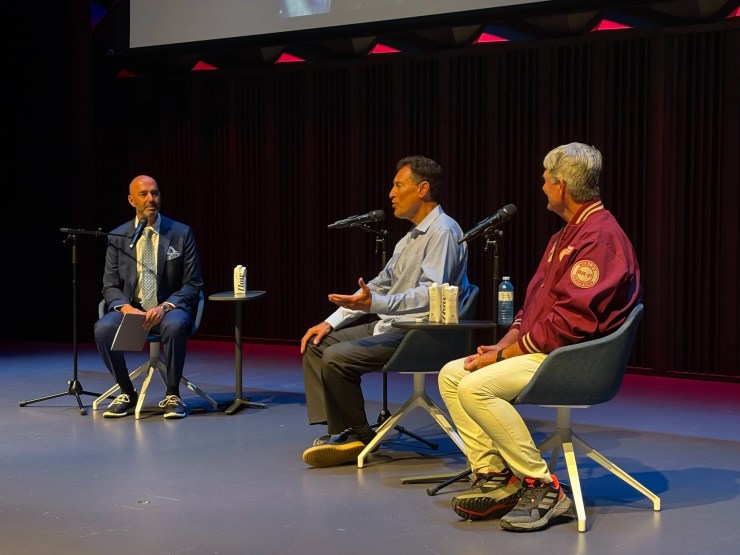
My response? That would make Alberta very happy. Alberta could make a deal with Bill Davis’ Ontario. Why? A Bill Davis Ontario would never tell another province to keep its oil in the ground, to hobble its economy to suit climate obsessions in his own province. A Bill Davis Ontario would support nation-building projects like trans-Canada pipelines not forcing Alberta to sell their oil at a discount to the U.S. A Bill Davis Ontario would never support gun seizures from law-abiding owners.
With respect, Steve, the Bill Davis Ontario is no more. There is no deal to be made at the moment. It is a place captured by the globalist fevers of Great Thunberg climate. It is a province in the thrall of liberal indigenous guilt marinated by its teachers and media. It is a province whose real-estate bubble is poisoning the national economy.
It is a province where politicians and leaders struggle to define a woman. Worst of all, Ontario returned an incompetent trust fund flibberty-gibbet not once, but three times as prime minister. The damage to the nation has been incalculable. Now they’ve elected his economic advisor.
And yet many of our Eastern friends believe that we are the ones who’ve have changed. They tell us we have drunk the cowboy Kool-aid and are now irredeemable. What they mean is, you’re become a traitor to your class. “Down the rabbit hole”. Cast out for being a Bill Davis centrist.
But we have not changed. Much of Alberta’s culture has not changed significantly, despite an NDP episode in government from 2012-15. Bill Davis, who died in 2021, would not find much change outside of the immigrants dropped on it by Justin Trudeau were he to visit today.
But eastern Canada? The whiplash changes might best be summed up by Vince Gasparro, the Liberal MP for a midtown Toronto riding, claiming that Canada’s economy is swell compared to other nations. To which the interim parliamentary budget officer Jason Jacques said just because someone else is 450 pounds and sick doesn’t mean an obese 350-pound person is healthy.

Forecasting a conservative $68.5 billion deficit, Jacques called the economy “unsustainable” and said the nation is at the precipice. “We’re at a point where, based upon our numbers, things cannot continue as they are, and I think everybody knows that,” Jacques said, He was immediately attacked by Liberal bot-world claiming he’s angling for a job with the Conservatives.
The closing of the Laurentian mind reflects what happened to the NDP, the party of Tommy Douglas. Once a national lean-left collection of union workers, farmers, culture figures and academics, it took its lead from the avuncular Ed Broadbent, Audrey McLaughlin and even Jack Layton. Socialist with a friendly face. The leaders calmed the Marxist fevers of their radical fringe.
Then, in the aftermath of Layton’s death, the party convulsed. The union workers and farmers were pushed out by radicals drunk on virtue. Under the DEI hire Jagmeet Singh they purged common sense, leaving Liberals to scoop up their less unhinged members. The survivors of Jagmeet wore keffiyehs in Parliament and predicted environmental doom. The party became irrelevant in 95 percent of the nation.
Their reward was a descent from 103 seats in the 2011 election to non-party status with just seven seats and six percent of the vote this year. While they make noises of relevance, they are now like the Monty Python “Bring out yer’ dead” skit in Search For The Holy Grail.
Which is gravy for the Carney Liberals who can now talk centre but govern as far left as it wishes. Which the Toronto Star says may soon include criminalizing residential school “denialism.” The author Michelle Good says that questioning the unsupported tales of murdered babies is just like “holocaust denial”.
The NDP collapse mirrors what is happening to the Democratic Party in the U.S. By design or by accident Donald Trump has bludgeoned them into assuming most of the policies that are now putting a torpedo into the NDP. Defending crime, endorsing unfettered illegal immigration, patronizing Hamas and other bad actors on the world stage, Balkan economics. Hollywood preening.
While the reviled Trump remains unrepentant, Democrats continue to sink in the polls. Married to California values they’re at 28 percent approval in the polls, and none of their potential 2028 presidential hopefuls is adding anyone to the base.
So the DEMs leadership intimidates its followers with this fatal equation, claiming to be the party of the future. There are a scarce few who remind their colleagues of what’s been lost. Pennsylvania senator John Fetterman who won his crucial seat despite enduring a stroke during the election run-up, is sounding warnings, however.

“Unchecked extreme rhetoric, like labels as Hitler or fascist, will foment more extreme outcomes,” Fetterman wrote. “Political violence is always wrong — no exceptions. We must all turn the temperature down.”
“Absolutely, it’s a reward for Hamas,” he said after Canada and other nations recognized a Palestinian state. “That’s going to be their narrative. They’re going to claim ‘That’s why we did 10/7. That birthed our nation,’ and I can’t ever give that to them.”

But his fellow party members are too engrossed in Jimmy Kimmel’s veneration at BlueSky, the Woke site, to notice that their base has deserted them. Canada’s liberals looking over the edge still get their reinforcement from like-minded people and a bribed media. But as Jacques says, the end is nigh, and everyone knows it.
Bruce Dowbiggin @dowbboy is the editor of Not The Public Broadcaster A two-time winner of the Gemini Award as Canada’s top television sports broadcaster, his new book Deal With It: The Trades That Stunned The NHL And Changed hockey is now available on Amazon. Inexact Science: The Six Most Compelling Draft Years In NHL History, his previous book with his son Evan, was voted the seventh-best professional hockey book of all time by bookauthority.org . His 2004 book Money Players was voted sixth best on the same list, and is available via brucedowbigginbooks.ca.
Bruce Dowbiggin
The McDavid Dilemma: Edmonton Faces Another Big Mess
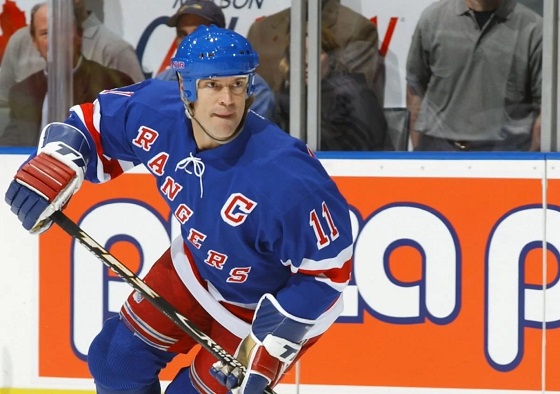
The 2025-26 NHL season opens this week with one overriding issue: Connor McDavid. Will the best player in this generation stay in Edmonton or go elsewhere? It’s a question that will be asked every day till the playoffs end or McDavid is traded. Naturally Edmonton is having a meltdown. Some are resigned to losing him. Others feel he could sign a bridge deal.
When it comes to losing their stars, Oilers City has been there before. The trade that always gets top billing is the 1988 Gretzky deal to the L.A. Kings, the seismic re-organization of hockey in the late 20th century. Less talked about— but more impactful on the ice— was a trade made this week in 1991 that sent Mark Messier to the New York Rangers. Messier led the Rangers their first Stanley Cup in 1994— their first since 1940. Gretzky never won a Cup away from Edmonton.
Here’s how Messier described the deal in our most recent book Deal With It: The Tales That Stunned The NHL & Changed Hockey:
Calling up GM Glen Sather a couple of months after the 1991 postseason ended to tell him he wanted to move, Messier years later recalled “phoning him was a tough thing. I think it was mid-July. I’d been thinking of this for a while. It wasn’t just the money. I’ve made it clear their offer was pretty good. Certainly enough, where I’d never have to worry again… But I had a gut feeling I wanted to make a change, to go. To try for a new challenge and grow a bit.”
Both sides knew it was just business of course. Messier was correct in assuming he would not enjoy anything close to a sixth Cup if he stayed for a lucrative offer in Edmonton.
“I was delighted with Mark,” Sather would admit about the parting of ways. “He’s a terrific guy to be with and a great player, and it’s sad for me to have to trade him. But it becomes more complicated than that, because of what we’re trying to do here now. I don’t want to be caught in a situation where we’re going to be struggling for five or six years, depending on the draft to get us competitive again. If you analyze the way teams in this league have worked, they’ve all run on cycles. You peak for three or four years, and then go downhill and try to get back up again. And if you don’t trade players you can recover with, then you’re never going to recover. You only have so many assets to make deals with.
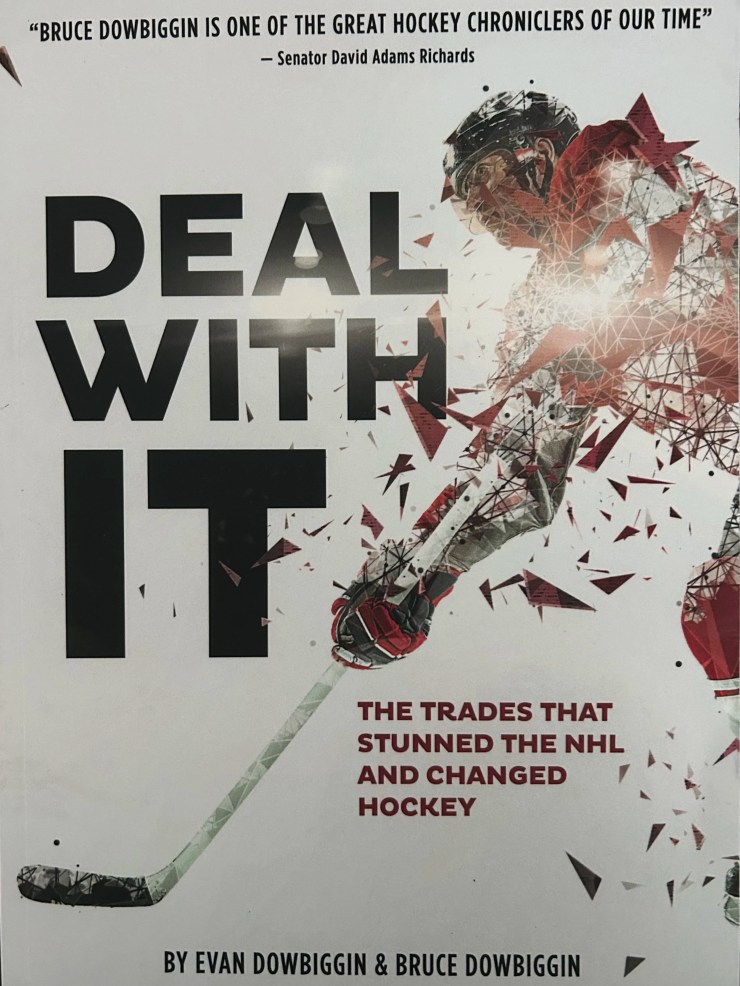
Neil Smith, the Rangers general manager who had seen his team endure back-to- back playoff disappointments (beaten both times by the Capitals), got wind of the possibility of landing the great “Moose” over the summer that year. Haggling for weeks toward an eventual deal, Sather would later point out the discrepancies between markets that were tearing apart the NHL at that time, bemoaning that “Maybe they’ll pay (Mark) in New York, maybe Mark is the kind of guy that can attract enough attention to do that. I mean, he’s going to be the matinee idol, he’s Madison Avenue, he’ll be terrific there. He’s the first big superstar they’ve had since Rod Gilbert, so they can afford to pay him whatever they want to pay. We don’t have MSG behind us.”
Edmonton’s training camp in 1991 went on with Messier absent, while he headed to Hilton Head to play golf with his father and brother following the 1991 Canada Cup win. Messier’s sabbatical in the sun ended on the day Edmonton’s season had started. On October 4, 1991, Messier got the call on the 16th tee box at Palmetto Dunes in South Carolina. It was Sather telling him he was headed to Broadway. In the deal, Bernie Nicholls, Steven Rice, Louie DeBrusk and future considerations (completed when the Rangers snagged Jeff Beukeboom for David Shaw) would be coming over in exchange for the vaunted Oiler captain. In the aftermath, an elated Smith hyperbolically called it “the biggest day in the 66-year history of the New York Rangers.” Hundreds and hundreds of miles away to the Northwest, reactions were considerably less enthusiastic.”

The rest was legend. With the media pressure and criticism mounting in the 1994 Conference Final, Messier was asked before the pivotal Game 6 matchup if he guaranteed a win. Responding, “Yes, we will win tonight,” he made what seemed like an innocuous comment at the time. But it was used by a NYC sports media that still lionized when “Broadway” Joe Namath had guaranteed his Jets would pull off the upset of the Baltimore Colts in Super Bowl III in 1969. Newspaper headlines honed in on Messier’s “bold guarantee.” The bravado would fall flatter than a pancake if this bulletin-board quote instead got the Rangers eliminated. Instead, Messier’s performance solidified his legacy as one of the great leaders/captains the sport had ever seen.” And the Rangers carried off the Cup, besting longtime whipping boys Vancouver in seven games.
Will McDavid win a Cup in Edmonton in 2026? Will he, like Messier, get his Cup with a large market team? Or will he be like Gretzky, doomed to play for three more teams without the big prize? This week we start the engines on Edmonton’s worst nightmare.
Bruce Dowbiggin @dowbboy is the editor of Not The Public Broadcaster A two-time winner of the Gemini Award as Canada’s top television sports broadcaster, his new book Deal With It: The Trades That Stunned The NHL And Changed hockey is now available on Amazon. Inexact Science: The Six Most Compelling Draft Years In NHL History, his previous book with his son Evan, was voted the seventh-best professional hockey book of all time by bookauthority.org . His 2004 book Money Players was voted sixth best on the same list, and is available via brucedowbigginbooks.ca.
-
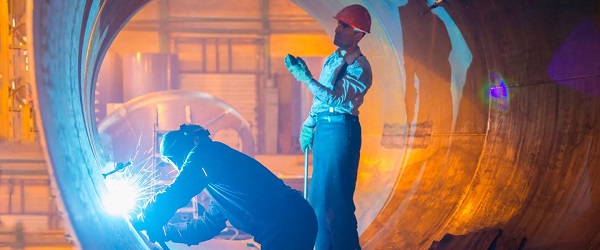
 Energy18 hours ago
Energy18 hours agoOttawa must eliminate harmful regulations to spur private investment in pipelines
-
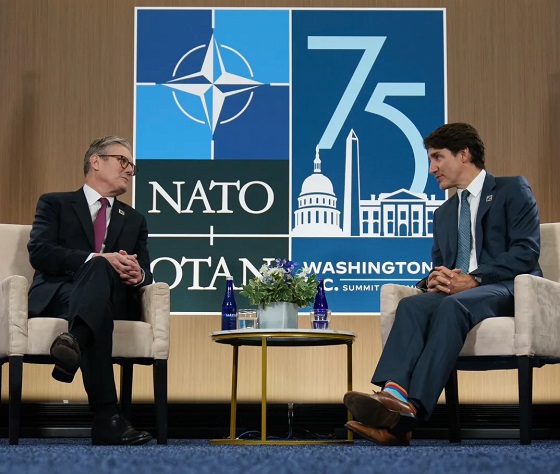
 espionage1 day ago
espionage1 day agoStarmer Faces Questions Over Suppressed China Spy Case, Echoing Trudeau’s Beijing Scandals
-
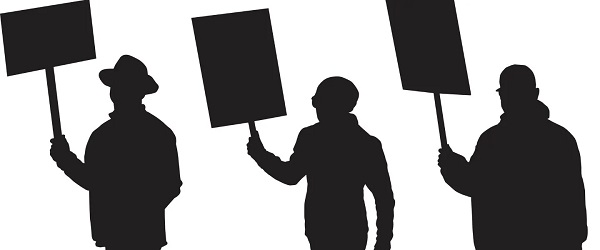
 Business19 hours ago
Business19 hours agoLabour disputes loom large over Canadian economy
-

 Alberta2 days ago
Alberta2 days agoJason Kenney’s Separatist Panic Misses the Point
-

 Energy12 hours ago
Energy12 hours agoBC NDP Premier Opposing a New Oil Pipeline to Tidewater
-
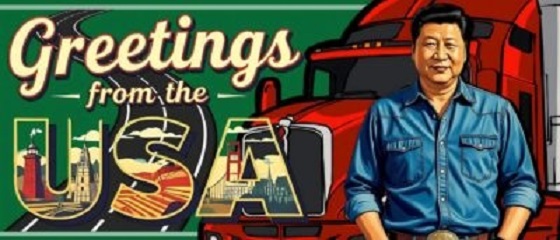
 Business19 hours ago
Business19 hours agoDaily Caller EXCLUSIVE: Chinese Gov’t-Tied Network Training Illegal Immigrants To Drive Big Rigs In US
-

 Automotive2 days ago
Automotive2 days agoBig Auto Wants Your Data. Trump and Congress Aren’t Having It.
-

 International12 hours ago
International12 hours agoNegotiations continue in Israel-Hamas peace deal
